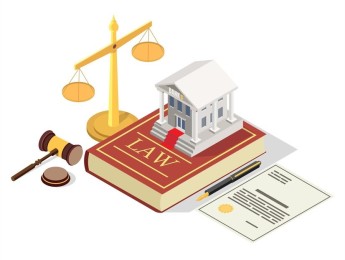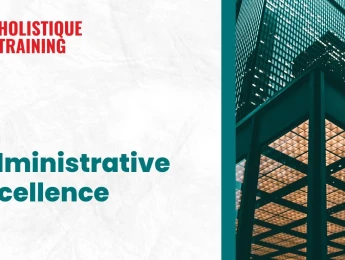Effective task and time management skills are essential to remaining competitive, working successfully with colleagues on shared goals, and meeting client and stakeholder needs. Any project requires you to manage challenges promptly and creatively.
This course provides the framework for developing professional skills through learning and implementing practical strategies and techniques. In addition, you will engage in self-assessment and develop plans to manage pressure proactively, meet objectives and deadlines, and empower yourself to plan, schedule, and manage your time effectively.
Upon completion of this course, participants will be able to:
- Organise your workday, workflow, and work systems effectively.
- Assess habits and situations that affect your performance.
- Develop strategies to achieve results with less time and effort.
- Plan and schedule tasks using basic project management tools.
- Manage and motivate your colleagues to achieve successful team collaboration.
This course is intended for
- Administrative and Support Staff
- Team Leaders, Supervisors, Managers, and Department Heads
- Professionals interested in developing leadership skills.
- Anyone interested in effective and efficient time and task management skills
This course uses a variety of adult learning styles to aid full understanding and comprehension. Participants will review case studies to highlight key areas of importance and possible areas for faults. They will be supplied with the best tools required for learning exercises to improve their skills. Participants will analyse the examples to thoroughly understand how these skills, techniques and methods apply in the workplace.
Day 5 of each course is reserved for a Q&A session, which may occur off-site. For 10-day courses, this also applies to day 10
Section 1: Organising Time, Tasks, And Systems
- Describe the role of self-management in overseeing tasks.
- Outline the psychological impacts of workload.
- Evaluate your productivity and identify improvement areas.
- Understand how work is accomplished in an organisation and how the organisation type impacts task management.
- Identify the function of strategic leadership management on tasks.
- Examine the effectiveness of activity logs, to-do lists, and action programs.
- Describe best practices for managing workflow, files, emails, and your office.
- Use the urgency important matrix to organise activities.
Section 2: Planning And Prioritising To Achieve Results
- Describe how to develop clear purpose and objectives for work tasks.
- Discuss goal setting and meeting multiple deadlines.
- Identify and manage stakeholders.
- Review effective scheduling techniques.
- Recognise the required skills to lead and manage tasks.
- Identify risks that affect priorities, deadlines, and tasks.
- Assess your delegation skills and areas for improvement.
- List and refine your work goals, objectives, assumptions, and constraints.
- Design a plan to integrate your tasks' scope, work structure, and management.
- Use Gantt charts to sequence project tasks
- Discuss the different applications of mind maps.
Section 3: Managing Your Time By Setting Priorities And Deadlines
- Use your work style as a preliminary time management plan.
- Examine how to plan schedules, deadlines, and time management.
- Discuss managing procrastination, distractions, and supervisors.
- Maximise the results from emails, interruptions, meetings, and transition time.
- Outline how to integrate time management into the development of priorities.
- Prepare a personal plan, priorities, and to-do list.
Section 4: Mastering Time, Task, And Work Planning Challenges
- Discuss how to manage interruptions and reduce distractions.
- Identify strategies for managing late, disorganised, or challenging people.
- Examine techniques to handle conflicting priorities and unexpected changes.
- Develop an understanding of procrastination and identify strategies to overcome it.
- Describe how to run productive meetings and make group decisions.
Section 5: Effective Collaboration
- Identify the skills required for successful task collaboration.
- Discuss how interpersonal skills affect task completion.
- Describe the value of understanding how you work with others.
- Identify the interpersonal work styles of your team.
- Understand the importance of task flexibility and resourcefulness in people leadership.
- Examine how to lead teams and improve their effectiveness.
- Develop essential and productive communication skills.
- Discuss the value of emotional intelligence in enhancing relationships.
Section 6: Managing Yourself Successfully
- Describe effective communication for successful task completion.
- Identify strategies to manage human change patterns.
- Examine ways to motivate and energise yourself.
- Outline stress and work-life balance strategies.
- Discuss how to improve focus and concentration.
- Explore methods to improve self-discipline and halt negative behaviours and habits.
- List the habits of a successful time and task manager.
- Develop an effective self-management plan.
- Describe how to support colleagues with change.
Upon successful completion of this training course, delegates will be awarded a Holistique Training Certificate of Completion. For those who attend and complete the online training course, a Holistique Training e-Certificate will be provided.
Holistique Training Certificates are accredited by the British Assessment Council (BAC) and The CPD Certification Service (CPD), and are certified under ISO 9001, ISO 21001, and ISO 29993 standards.
CPD credits for this course are granted by our Certificates and will be reflected on the Holistique Training Certificate of Completion. In accordance with the standards of The CPD Certification Service, one CPD credit is awarded per hour of course attendance. A maximum of 50 CPD credits can be claimed for any single course we currently offer.
- Course Code MG1-110
- Course Format Classroom, Online,
- Duration 5 days














